Parliamentary Breakfast in the German Bundestag: Focus on the future promotion of German minorities
18.06.2024At the invitation of the FUEN Working Group of German Minorities (AGDM) and under the patronage of Natalie Pawlik, the Federal Government Commissioner of Germany for Matters Related to Ethnic German Resettlers and National Minorities, a Parliamentary Breakfast was held last Friday (14 June) in the German Bundestag. The exchange between representatives of German minorities and political decision-makers centred on the importance of future financial support for German minorities abroad by the Federal Republic of Germany.
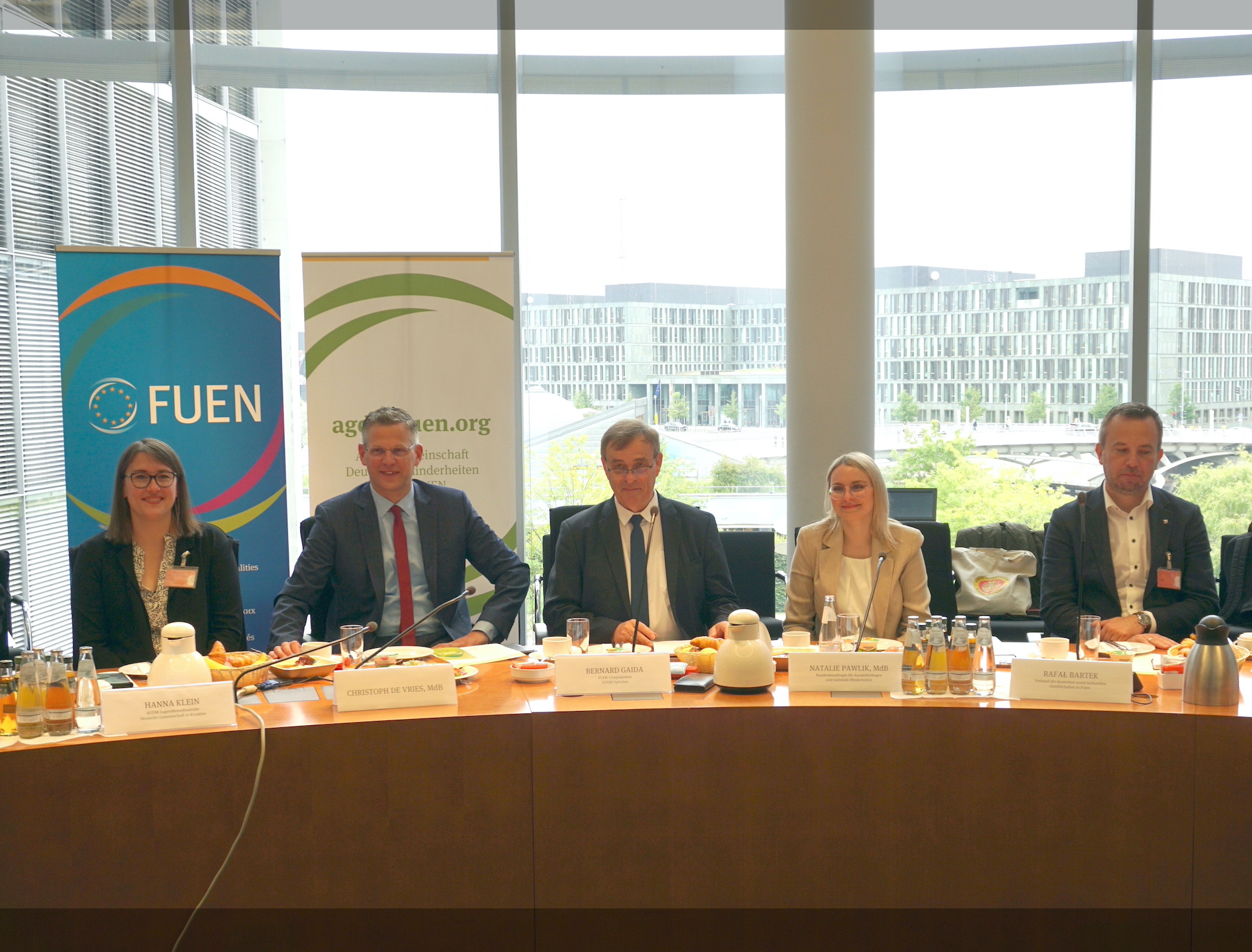
The meeting, held at the Paul-Löbe-Haus of the German Bundestag, was opened by Bernard Gaida, the spokesperson of the AGDM. After a brief welcome to the attendees, Natalie Pawlik took the floor. In her opening statement, the SPD politician first pointed out that the consequences of World War II still affect the German minorities today, impacting the lives and identities of the respective communities.
She emphasized the significance of minority policy as peace policy and highlighted the important role of German minorities as bridge-builders between different cultures and countries. Pawlik also addressed the challenges posed by the war in Ukraine for the German minority there. Furthermore, she mentioned the difficult situation of the German minority in Russia, which must operate under the so-called foreign agent law and cannot act freely.
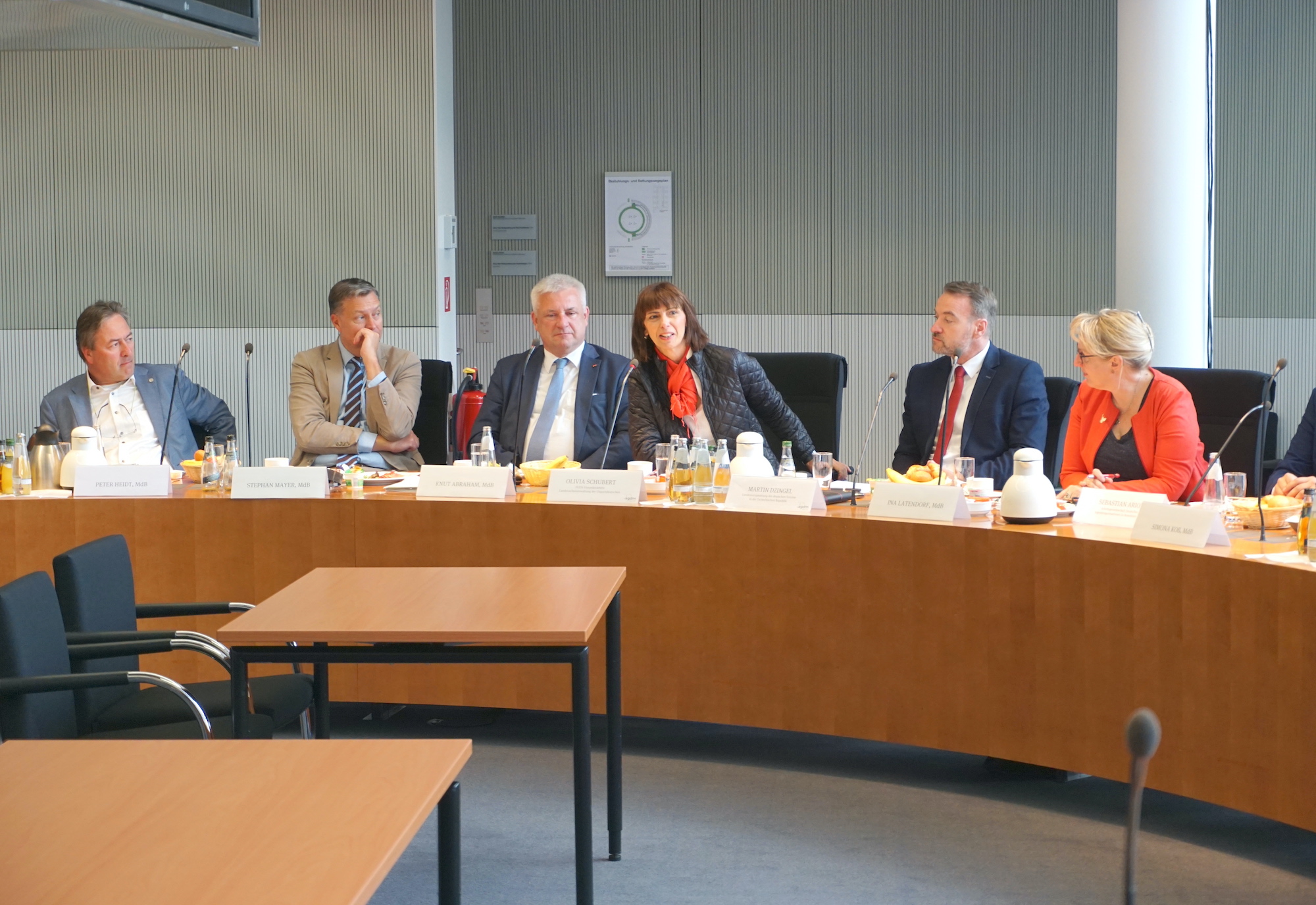
As the Parliamentary Breakfast progressed, representatives of the German minorities expressed their concerns about the future level of funding for their communities by the Federal Republic of Germany. It was made clear that constant funding amidst rising inflation effectively means cuts. Projects dependent on financial support could not continue if funds were further reduced, jeopardizing youth work and important cultural initiatives.
The discussion also highlighted the central role that German minorities play in strengthening civil society and promoting democratic values in their home countries. It was noted that in regions where minorities live, democratic structures are often more robust. Additionally, the economic benefits that minorities bring to these regions were highlighted. Despite these positive aspects, there is still a lack of understanding of the long-term benefits of minority policies. It was also argued that the support for German minorities should be planned long-term, not just annually.
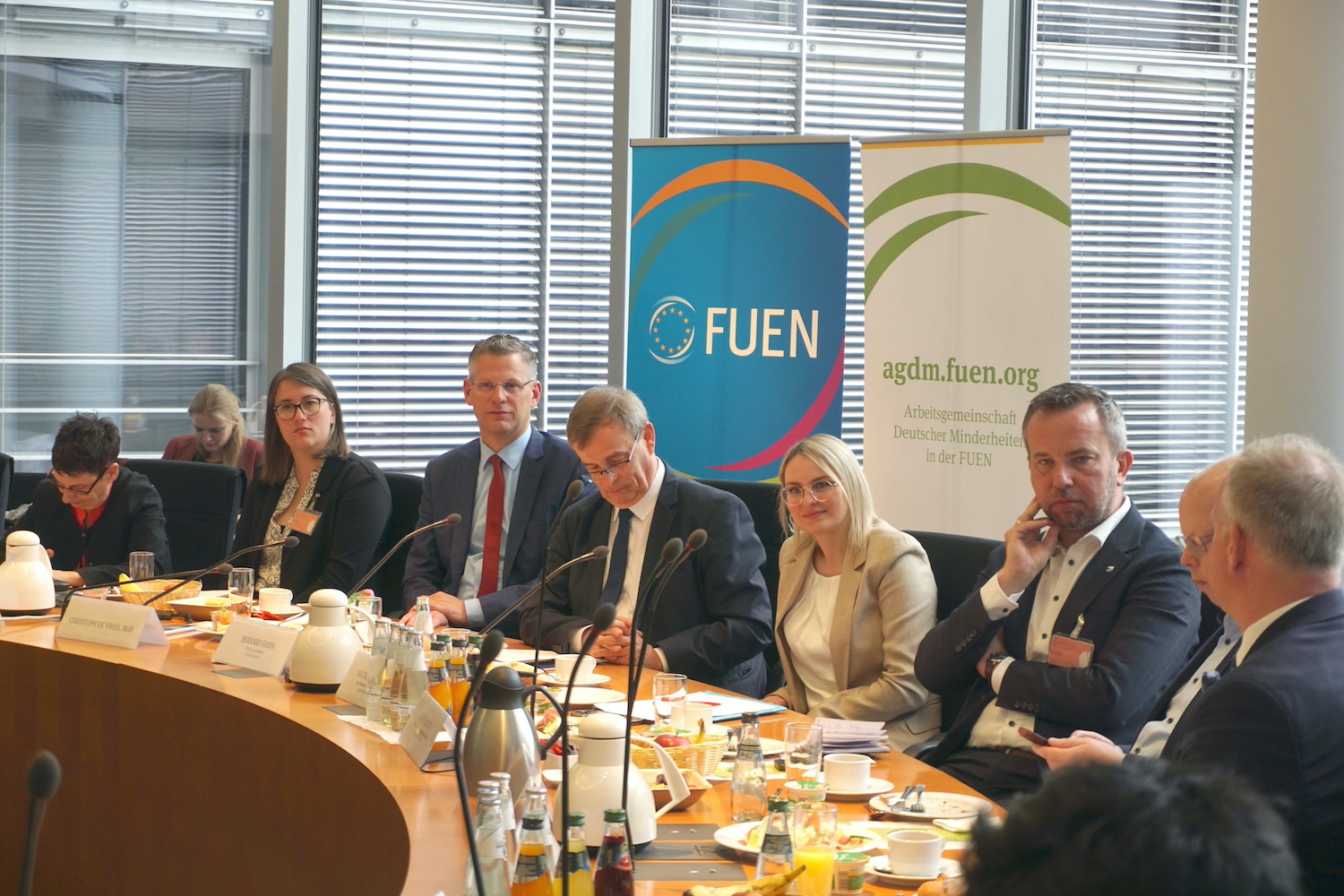
At the end of the meeting, individual members of parliament from various parties assured their support for the German minorities and reaffirmed the importance of their concerns. Christoph de Vries (CDU) praised the efforts of the German minorities to continuously preserve their culture, stating that these efforts should continue to be supported in the future. He emphasized that even small cuts could cause significant damage, and efforts should be made to prevent further reductions in funding.
Simona Koß (SPD) indicated that her faction would carefully consider how to handle potential cuts, stressing the importance of German minorities as an expression of democracy and advocating for a unified approach by democratic forces. Her colleague, Kathrin Michel (SPD), who co-negotiates the federal budget, acknowledged the problem of potential cuts and supported Christoph de Vries' calls to maintain funding, asking him to relay the concerns of the German minorities to the budget committee members of his faction.
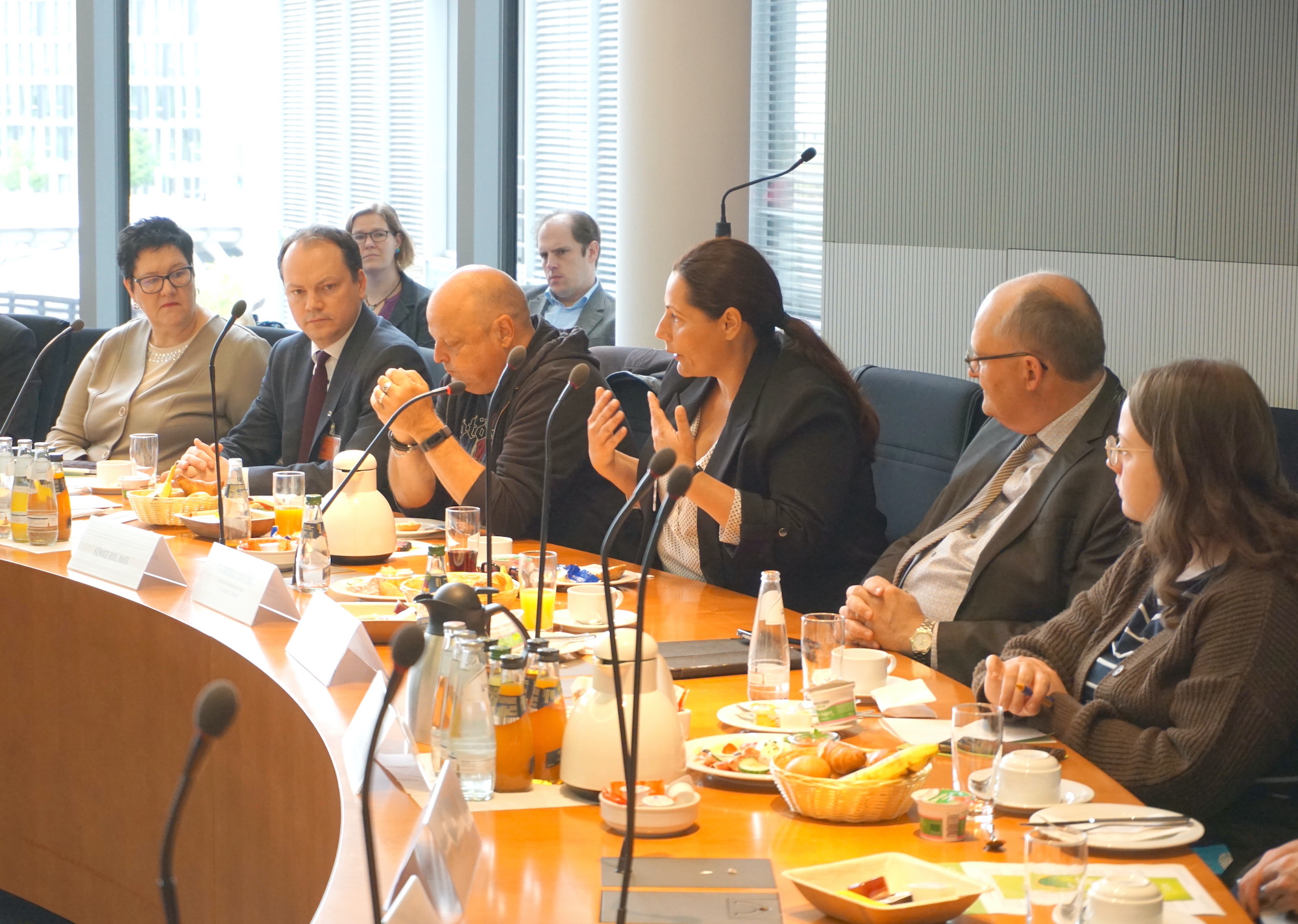
Stefan Seidler, the SSW Bundestag member who belongs to the Danish minority in Germany, pointed to the efforts of the Parliamentary Circle of Minorities to provide support despite the difficult budget situation. And Ina Latendorf (Die Linke) promised to bring the message to her talks with the budget holders and to do some persuading.
The event ended with a renewed appeal to the members of parliament present to stop cutting funding for German minorities abroad. Clear and sustainable support is needed, said Bernard Gaida, who was convinced that he had found in them multipliers for the concerns of the German minorities.
The FUEN Working Group of German Minorities would like to thank the members of the German Bundestag who were present for their committed participation and the Federal Ministry of the Interior and Community for its generous financial support.
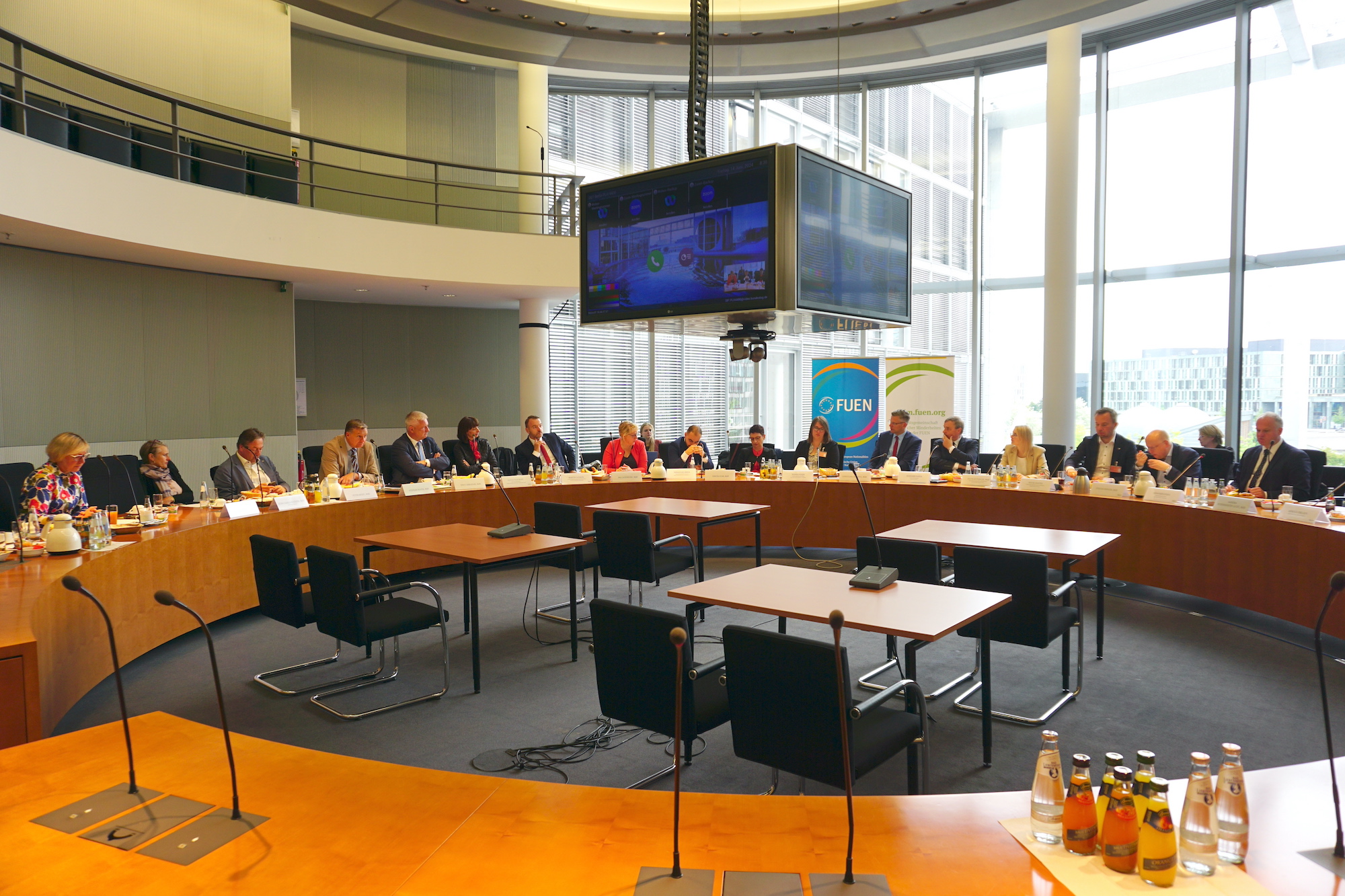
COMMUNIQUÉ DE PRESSE
- FUEN wishes you a peaceful Christmas season, restful days and a bright, hopeful start to the new year!
- FUEN calls on the EU to act over systematic ethnic-based land confiscations in Slovakia
- Women of Minorities conference in Budapest calls for structural change to ensure equal political participation of minority women
- FUEN President Olivia Schubert at UN Forum on Minority Issues in Geneva
- "Laboratory of Peace": 28th Seminar of Slavic Minorities held in European Capital of Culture Gorica/Gorizia
- Equality in Political Participation and Representation: Third “Women of Minorities” Conference to Be Held in Budapest
- FUEN Working Group on Education discusses challenges and future of minority schooling in Europe
- 28th Seminar of Slavic Minorities in Europe to take place in Gorica/Gorizia, Italy
- Olivia Schubert in her first interview as FUEN President
- FUEN Assembly of Delegates elects new leadership – Olivia Schubert becomes new President














